
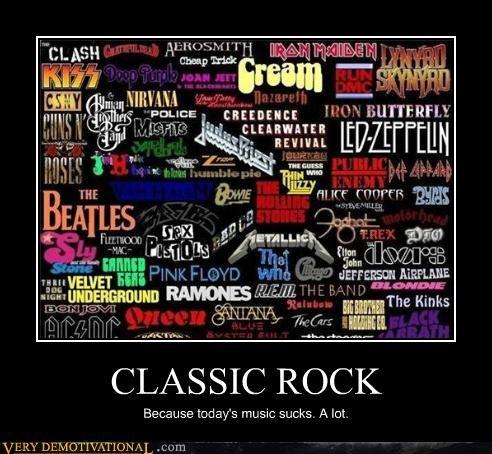
Yes.
~
(of Of)
(everyday every day)
[I wouldn’t want you to feel left out, nor would I want accusations that I play favorites.]
(Everyday Every day)
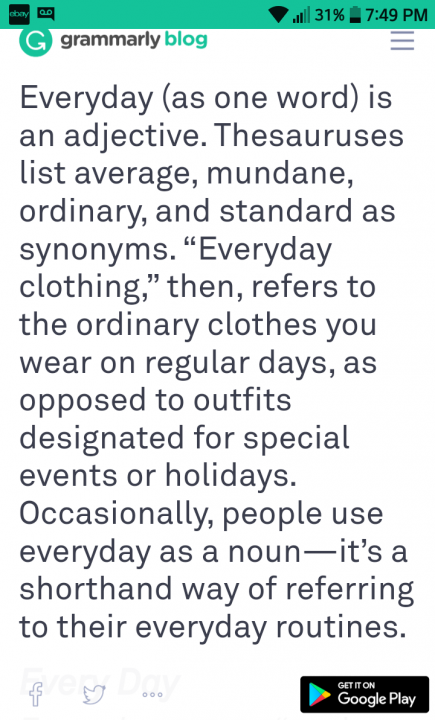
Context, my dear, context.
If you were to write: on an everyday basis you would be correct in using it in adjective form. What you did write, however, is something that you do each day, or every single day. You did not state it in adjective form.
It’s quite common for people to get this and many other compound words wrong and confuse them with their two-word use. There is a difference between everyday and every day, you merely got it wrong.
~
You just made my point for me and refuted your own: the fact that the adjective “everyday” modified the noun “routine” indicates that it is used appropriately in your sentence. Your original response, however, did not display an adjective that modified any noun. You’re confusing it with an adverb, which modifies a verb.
1. I listen to it daily, which means it’s an everyday occurrence. “everyday” is the adjective that modified the noun “occurrence “
2. I listen to everyday chatter on the radio. “chatter” is the noun that is modified by the adjective “everyday”
3. Every day, I listen to everyday mistakes that are made in speaking. “Every” is the adjective that modified the noun “day”, “everyday” is the adjective that modified the noun “mistake”.
Listen, we can go on with this six million times if you like, with you presenting your assumptive examples of what you think correct, and it still comes down to a simple fact: you used the word/s incorrectly. Claiming that you have internet-based proof that you’re right doesn’t absolve the fact that you misunderstand what the an adjective is or how to use one. If you’re so enamored with internet examples, try these:
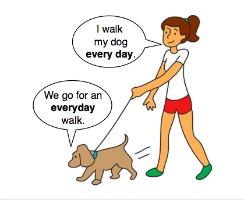

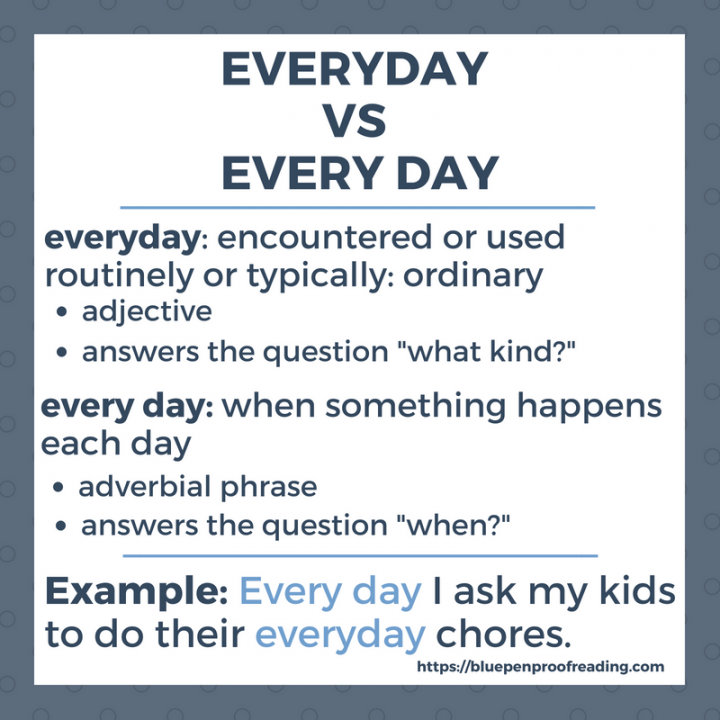
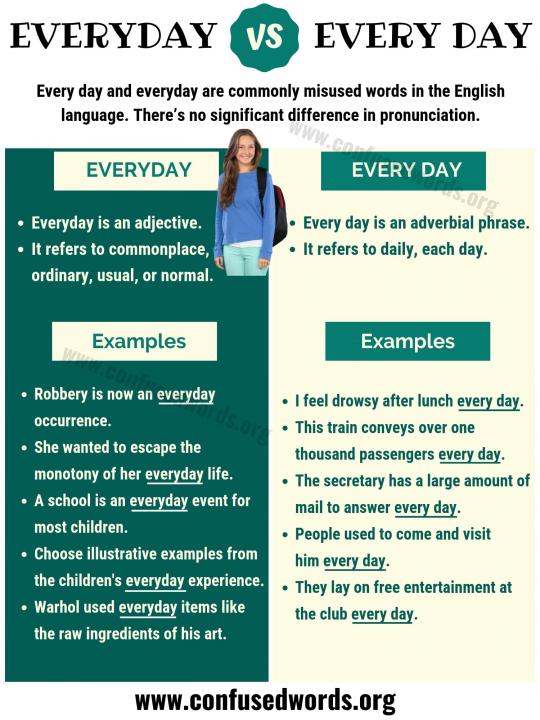
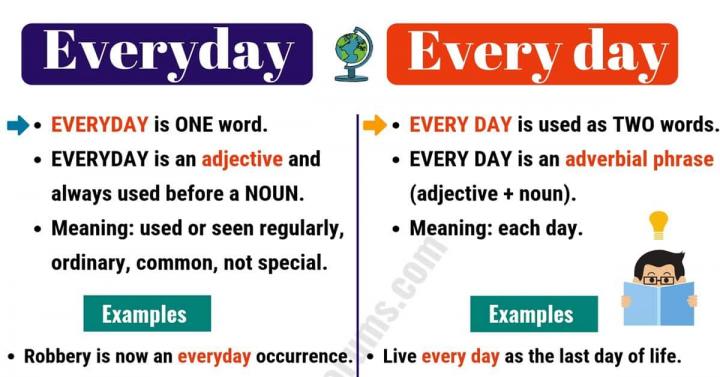
Your turn.
~
The word everyday is not a noun. You have the right to use it as a noun or call it a noun or pretend it’s a noun or believe that it’s a noun, none of that makes it a noun. People use words incorrectly every day, it’s an everyday thing, I do it myself (“It was him” instead of “It was he”), and many justify that incorrect use in a myriad of ways. Fine. Your use or grammar in general is not above average, so the fact that you are steadfast on an assumption that I know is wrong doesn’t inspire me to concede. I don’t know what you’re aiming for here. Apparently, you’ll keep stacking up bricks to bolster your side, they’ve all been incorrect so far, and if you like, I can also stack up bricks on my side. You know me; I won’t stop. If you decide that you won’t either, then it’s go-time. Like I stated earlier, we can keep up the tennis match, pounding the hall over the net forever, you might not ever accept that what I’m conveying is correct, and I know FOR SURE that I will not accept your incorrect position, do as we say in Spanish, “Qué vale la pena?” Roughly translated, “What is it worth?” or “Why are we doing it?”
Once again, the ball is in your court.
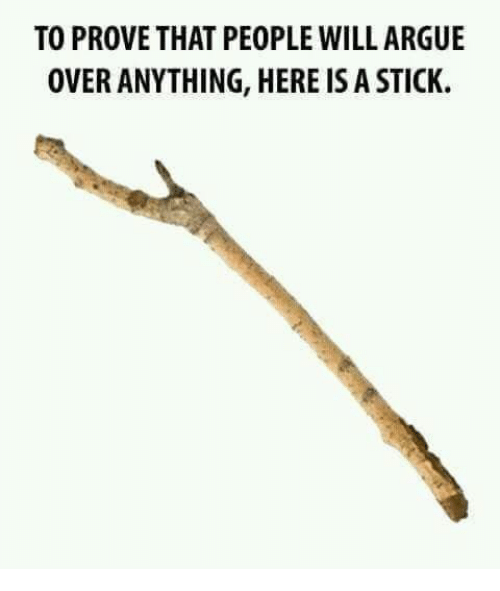
~